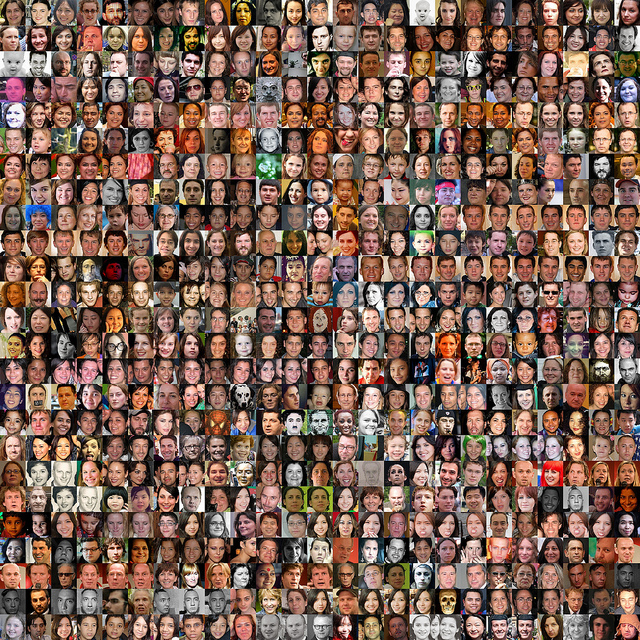
Data provides a focus for community action
Bryan Sivak is chief technology officer for the U.S. Department of Health and Human Services. Below, he writes about Knight News Challenge: Health and how making data publicly available fosters a healthier America. Photo credit: Flickr user Fran Simo.
All across America there is a dramatic movement underway to reshape health care. The major tectonic plates of care delivery systems, hospitals, businesses, insurance plans, employer-purchasers, consumer groups and government are shifting as they have surpassed their tolerance thresholds for the status quo. The major pressure points for change are increased frustration with the high costs, unpredictable quality of care and outcomes, and lack of equitable and reliable access to services.
Unquestionably, the stakes are high and the costs of failure immense, so how can risk be managed and benefits maximized? Reshaping one of the largest sectors of our economy can’t be totally empiric—and that’s where data enters the picture. Across the board, health care has been known for the lack of transparency across nearly every form of transaction that occurs. But that’s changing now with the availability of data. Related Links
“What’s next in Knight News Challenge: Health” by Chris Sopher
“Bring your best ideas; deadline nears for News Challenge: Health” by Chris Sopher
“Knight News Challenge: Health opens with inspiration phase, additional prizes from collaborators” by Raina Kumra and John Bracken
“Announcing key collaborators and details of Knight News Challenge: Health” by John Bracken and Chris Barr
“Join us to brainstorm ideas around News Challenge: Health” and There’s still time to brainstorm around News Challenge: Heath” by Chris Sopher
“Data: Why we care” by Esther Dyson
“News Challenge: Make APIs not apps, health CEO says” by Lucky Gunasekara
“How data-driven solutions can transform health” by Lexie Komisar
“California HealthCare Foundation: The data stops here” and “It takes a community to humanize health data” by Andy Krackov
“Data essential to promoting healthy habits” by Nirav R. Shah
“Pizza tracker versus patient tracker” by M. Bridget Duffy
Here at the Department of Health and Human Services, there are some key drivers for increased access to federal data. This includes many policies resulting from implementation of the Patient Protection and Affordable Care Act of 2010, which has a number of payment incentives and elements of reform that are significantly based on data availability and analysis.
Payments to health care providers and hospitals to enhance the use of electronic medical records are transforming the industry, and are creating immense data resources to allow quality and cost to finally be examined in a digital world. We have also made it a high priority for all of our federal health programs to make data easily locatable through a common catalog of data resources, Healthdata.gov. The Obama administration is encouraging innovation at all levels of health care by soliciting and testing ideas from across the country, which allows us to learn where the status quo can be challenged and value can be created. All of this might seem like we are taking an “inside the Beltway” approach to solving the problems, but nothing could be further from the truth.
I’ve seen many communities, groups and individuals use data to fuel innovative solutions to these problems. It is impressive how state governments in New York, North Carolina, Louisiana, Illinois and California are taking large steps to make data sets accessible to researchers, technology developers, investigative journalists and others. Many cities and counties are also making their data resources publicly available. In this realm, economic development offices connect innovators and use incentives to attract new businesses and technology developers in health telecommunications, data analytics, software and hardware development, and health service processes.
At the Department of Health and Human Services, we are enormously proud and appreciative of the Knight Foundation and their News Challenge: Health. This competition puts data to work to accelerate community change by creating useful information and services to benefit the public. I have no doubt that the results will become major mileposts on our journey to a healthier America that all will share. I want to encourage you or someone you know to participate in the News Challenge if you have an interest in improving health care through innovative uses of data.
Knight Foundation has committed $2 million to News Challenge: Health, which is open for entries through Sept. 17. The Robert Wood Johnson Foundation will award prizes of $50,000, $30,000 and $20,000 respectively for the top three projects that “best combine public health data and health care data.” The California HealthCare Foundation will award $100,000 to one or more ideas that enhance the use of health data in local policymaking. For more visit newschallenge.org.
Recent Content
-
Journalismarticle ·
-
Journalismarticle ·
-
Journalismarticle ·


